Why cheap imported steel can lead to galvanising failure
When investing in a hay shed or any steel structure, galvanising failure can cost you thousands in ...
Here you will find our latest blog articles. Browse our range of content below to get shed tips and advice, and ABC Sheds news. Want to stay up-to-date? Sign up for news and updates straight to your inbox, using the form below.

When investing in a hay shed or any steel structure, galvanising failure can cost you thousands in ...

Building a shearing shed is a significant investment for any farming operation. Whether you're ...

Getting your horse arena dimensions right matters more than most first-time builders realise. A ...

Steel sheds are workhorses on rural properties across Australia, sheltering everything from ...

Pouring concrete footings for your steel shed is just the beginning. What happens next determines ...

Planning a new farm shed means understanding exactly what arrives on your property and what you ...

Your farm shed is the heart of your operation. It’s the year-round workshop and protector of your ...

You’ve invested tens, if not hundreds, of thousands of dollars in a new farm shed to protect your ...

When you hear the term ‘shed kit’, you might picture a small, flat-packed garden shed from a ...

Every school principal knows the frustration of trying to schedule major facility upgrades during ...

What makes a farm shed last for decades instead of falling apart in just a few years? How do you ...

School infrastructure projects often face additional scrutiny and approval processes once they ...

Planning a new shed for your property brings up one major decision right from the start: should you ...

The Australian hay market is painting a tale of two seasons in 2025. While Victoria and South ...

Planning a large shed project this year? You're not alone. The Australian shed market has been on ...

If you’re planning your next farm shed project, you've probably been wondering whether you'll need ...

When you're planning a new farm shed, the quote can sometimes feel like a reality check. Between ...

When planning a new shed for your property, one of the first questions many customers ask is ...

Your harvester needs a home. Your tractors need shelter. Your equipment needs protection. But how ...
.jpg?width=365&name=2504%20ABC%20Sheds%20-%20Blog%20(1).jpg)
If you need a new shed or building, the lead time can be a significant factor in your chosen ...
.jpg?width=365&name=2503%20ABC%20Sheds%20-%20Blog%20(1).jpg)
An industrial shed is a versatile, large-scale structure designed for commercial and industrial ...

When businesses require extra space, one of the biggest financial decisions they face is whether to ...

If you are considering a new covered outdoor learning area for your school, one of your main ...

Across Australia, both residential and commercial real estate offer compelling opportunities for ...

Feedlot shelters offer significant advantages for livestock producers, ensuring healthier animals, ...
-1.jpg?width=365&name=ABC%20Sheds%20-%20Blog%20images%20%20(1)-1.jpg)
Are your current premises and future business goals aligned? Be it an office, warehouse, or ...
.jpg?width=365&name=ABC%20Sheds%20-%20Blog%20images%20%20(2).jpg)
Over the years, our team has worked on sheds all over Australia. We take pride in our workmanship, ...

Excessive heat load in livestock can result in significant production losses, animal welfare ...

The one thing at the core of business growth is space. Whether you’re expanding markets, meeting ...

Managing a viable farm business is a challenge, especially in the current economic climate. ...

Are you looking for ways to decrease running costs? In this article, we highlight 10 ways to reduce ...

Steel is one of the most popular construction materials due to its incredible strength and ...

Investing in a new shed is a big decision. So what is a portal frame and is it the best option for ...

When it comes to investing in a farm shed, machinery shed or any other type of rural farm shed, it ...

At ABC Sheds, we understand that over time, your storage needs will change. If your current shed no ...
.jpg?width=365&name=Untitled%20design%20(15).jpg)
Since our establishment in the 1980’s, the ABC Sheds team has been dedicated to creating ...

Made of steel, farm sheds are essential structures for any farm as they provide storage for ...
.png?width=365&name=ABC%20Sheds%20%20Blog%202%20(1).png)
In Australia, sheds are exposed to extreme temperatures, impacting internal temperatures and ...
.jpg?width=365&name=Blog%201%20image%20%20(1).jpg)
The right farm storage is a game-changer, keeping your valuable assets safe and secure. A ...

A shed-building project is filled with technical terms and industry lingo, which can be confusing. ...

Machinery sheds provide a practical and secure space to store your valuable assets and equipment. ...
.jpg?width=365&name=ABC%20Sheds%20%20Feature%20image%20(1200%20x%20630).jpg)
When building a large shed, you need a reliable, trusted supplier specialising in the right type of ...
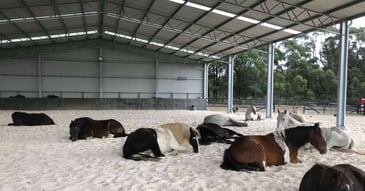
At ABC Sheds, we’ve worked on a wide range of equestrian buildings over the years, including horse ...
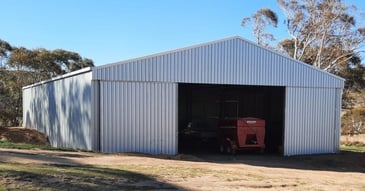
In this article, we explain what a kit shed is, the pros and cons, and how they compare to ...
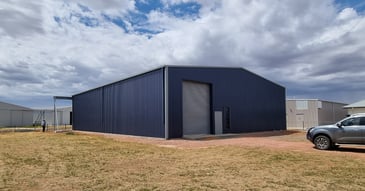
The colour of your steel shed has a major impact on its energy efficiency, durability, and visual ...
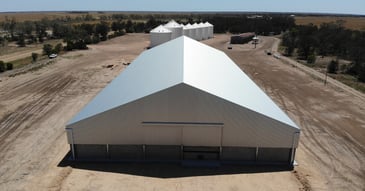
If you’re in the market for a cotton storage shed, a structural steel shed should be at the top of ...
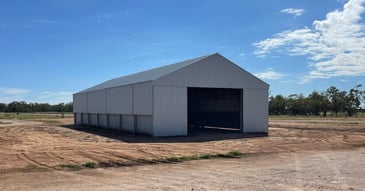
Correctly storing your fertiliser is critical, especially in light of the current urea shortage in ...
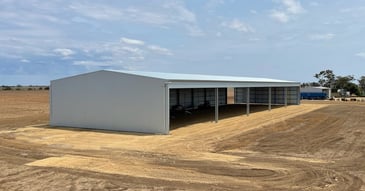
If you want to build a large shed, you must have full confidence in your supplier. The question is ...
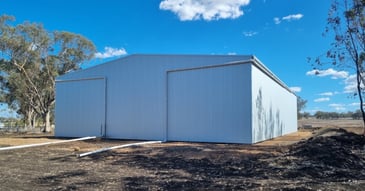
When building a shed, the best cladding material is a major decision. Not only will this impact the ...
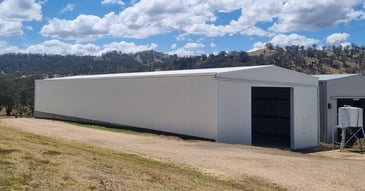
Over the last twelve months, our team has worked on sheds all over Australia. The ABC Sheds team ...
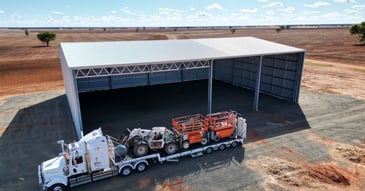
In our years in the shed-building industry, we’ve built a lot of farm machinery sheds. During that ...
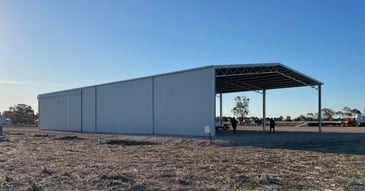
Every shed company quotes differently so it's important to know that what you're receiving is ...
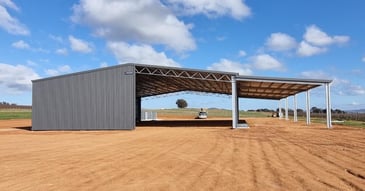
There are lots of decisions to make when purchasing a new shed, including which material is best. ...
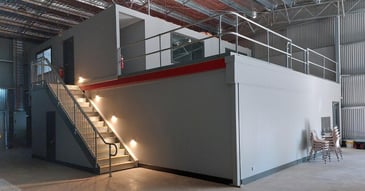
A mezzanine floor is an excellent way to maximise storage inside your shed. The extra floor space ...
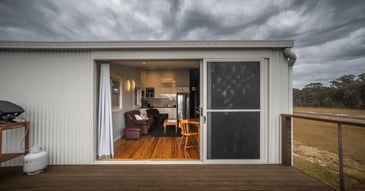
If you’re exploring innovative ways to build a house, holiday home, or weekend getaway, you’ve ...
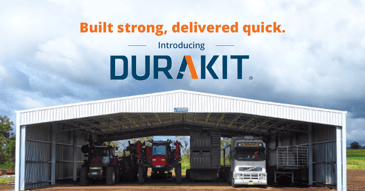
Here at ABC Sheds, we are always looking for ways to align our processes with our customers’ needs. ...
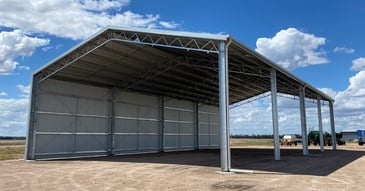
When building a shed, the right bracing provides stability and strength. When used correctly, ...
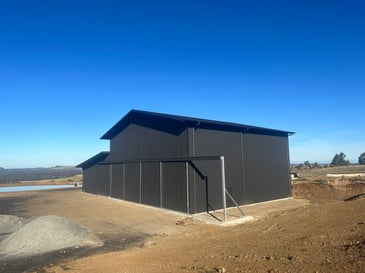
If your shed does not meet the National Construction Code, you may have to take it down or halt ...
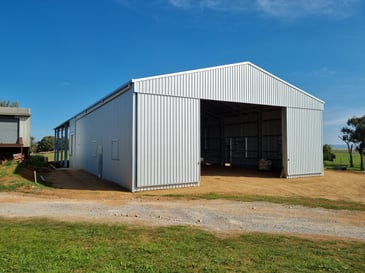
Choosing the right shed door can be daunting, especially when you consider functionality, frequency ...
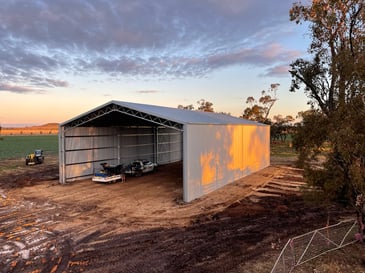
A well-designed farm shed allows you to run your farm more efficiently. By creating a practical ...
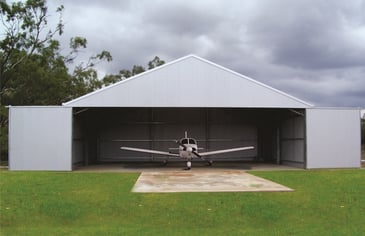
If you’re planning to build a new shed, you may have heard the terms ‘wide span’, ‘portal-frame’ or ...
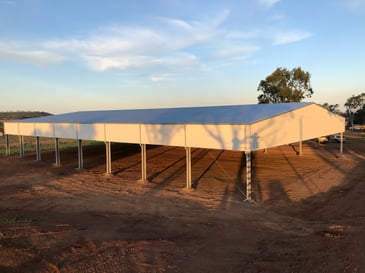
If you’re planning to build a shed in Australia, you have a lot of suppliers to choose from. The ...
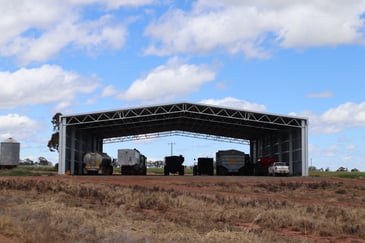
When building a steel shed, you will need to compare quotes from several shed suppliers. If you ...
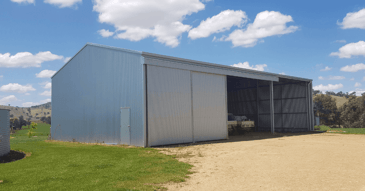
If you’re in the market for a farm shed in New South Wales, structural steel sheds will be at the ...
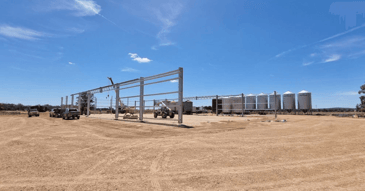
Building a shed comes with lots of decisions – some of which happen long before construction ...

If you’re planning to build an industrial shed, the construction cost is likely a critical factor ...
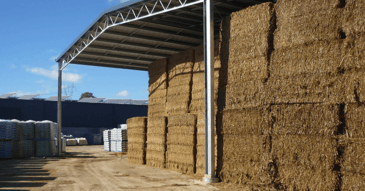
For hardworking farmers, having the right amount of hay storage is crucial. A well-designed hay ...
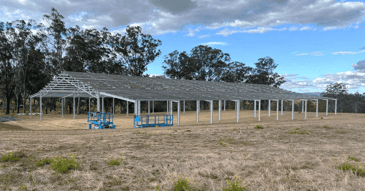
If your shed does not meet local council regulations, you may have to take it down or halt ...
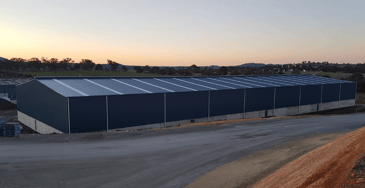
If you’re a farmer, you’ll know the importance of having a reliable place to store your ...
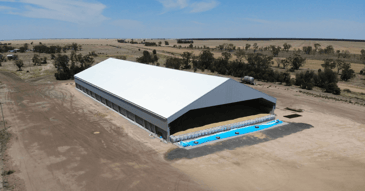
Grain storage is an essential part of the during and post-harvest process that helps to preserve ...
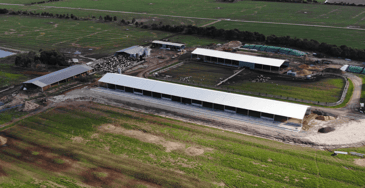
In the past twelve months, we’ve been busily working on sheds all over Australia. With material ...
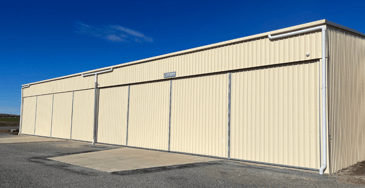
For most farm sheds and industrial buildings, door access is crucial. To keep your operations ...
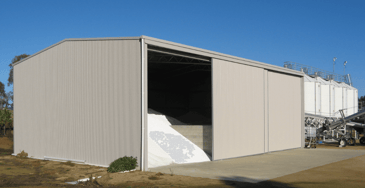
When storing your farm’s fertiliser, there are several things to know that can improve ...
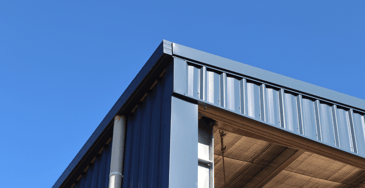
When building a steel shed, you need to have full confidence in its strength, durability, and ...
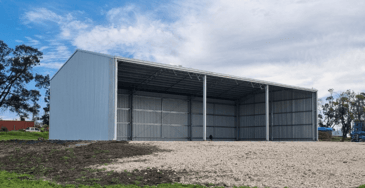
For farmers, the right hay storage is game-changing. Not only does dry hay keep livestock happy and ...

The ABC team has been designing and building Australian sheds for four decades but there's more to ...
.png?width=365&name=abc_sheds_blog_building%20_a_steel_shed%20(1).png)
While there’s no magic formula for building a shed, there are a few core principles to follow that ...
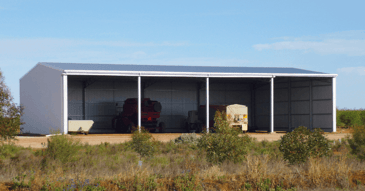
When building a new shed, one design choice you will need to make is determining the correct size ...
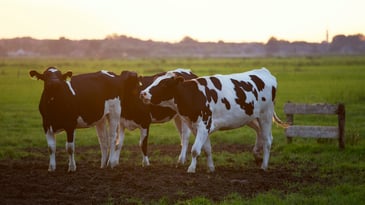
With a recent outbreak of foot-and-mouth disease (FMD) in Indonesia, the possibility of the ...
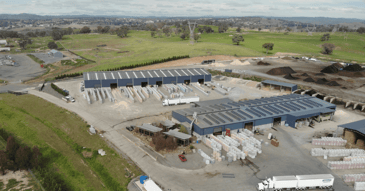
Investing in a warehouse could be one of the best decisions you ever make for your business. ...
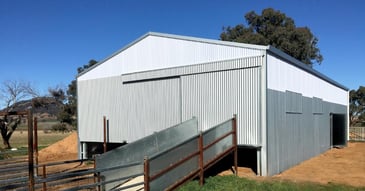
Polycarbonate or translucent sheets are a popular construction material due to their ability to let ...
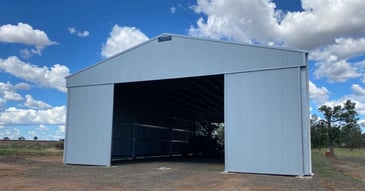
Choosing the right height for a farm shed or industrial building is a critical decision, and can be ...
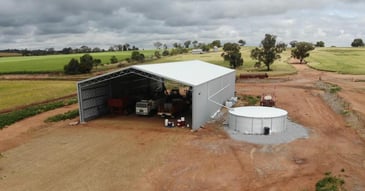
Looking after your farm machinery is important, so choosing the right shed to store it in should be ...
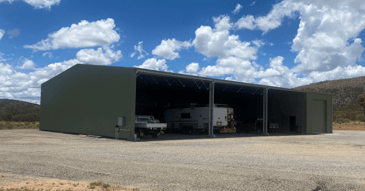
When purchasing any big ticket item like a new car, home or shed, it always helps to know the ...
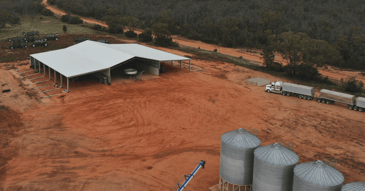
It’s an age-old question and something that we get asked time and time again – what’s the ...
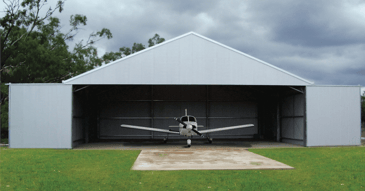
Whether you need an aircraft hangar for a new aviation park or you have a hobby plane that needs a ...
.png?width=365&name=abc_sheds_blog_feature_workshop_sheds_v2%20(1).png)
Investing in a versatile shed like a workshop is a wise choice! A workshop can provide years of ...
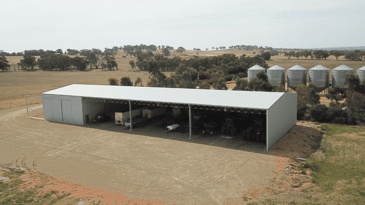
The cost of a steel shed is a question we get asked frequently. This can be hard to answer as no ...
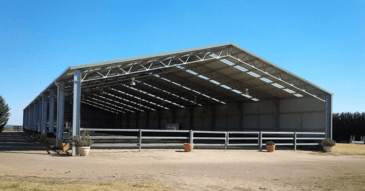
Equestrian sheds and horse arenas are becoming increasingly popular, in fact, a covered riding ...
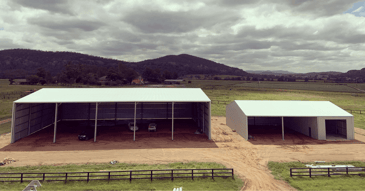
Sheds – they’re now essential for almost any farm or farming business. Whether you use them for hay ...
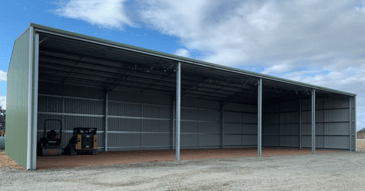
As the end of 2021 nears, now can be a great time to start planning ahead so that you’re well ...
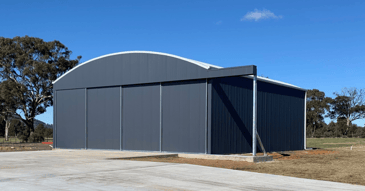
It’s that time again where we take a look back at the year that has been – the highs, the lows and ...
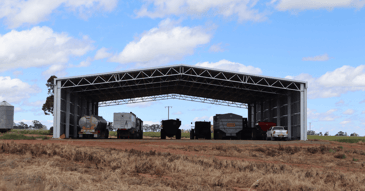
Each year, shed design trends come and go, bringing with them a variety of new styles and ideas. ...

The ABC Sheds Sales Team Discussing people’s dream shed means we’re asked a bunch of questions each ...
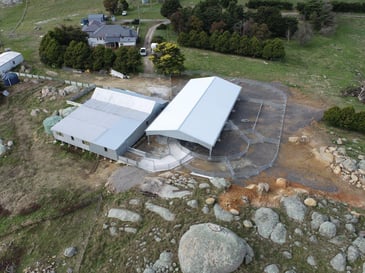
A yard cover serves multiple purposes on a hard-working farm. From protecting animals from the ...
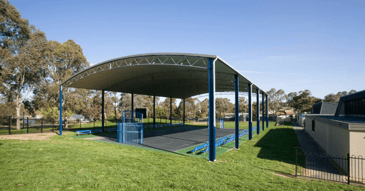
Creating an environment that allows children to get out and enjoy the outdoors all year round is ...
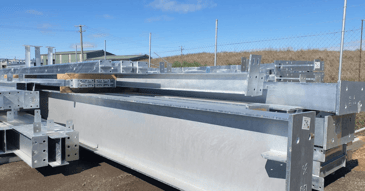
Here at ABC Sheds, we use hot-dip galvanising to ensure that our sheds can stand up to even the ...
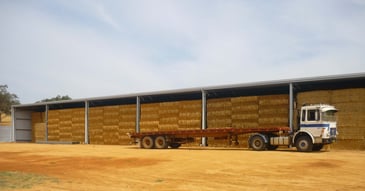
So you’re considering a new hay shed? Great choice! A new hay shed is not only an excellent way to ...
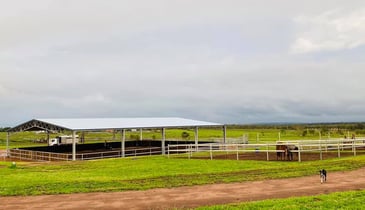
With a passion for horses that started in 2001, Abe Graham grew up spending his weekends at ...
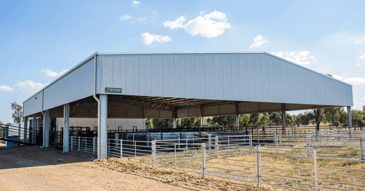
If you own cattle, livestock, or run a sheep and beef farm, then chances are you already have a ...
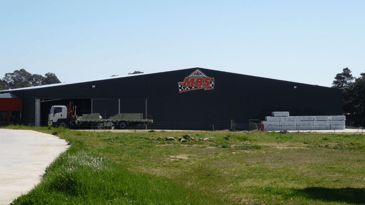
Steel has many benefits and is known for its durability, weather resistance, and corrosion ...
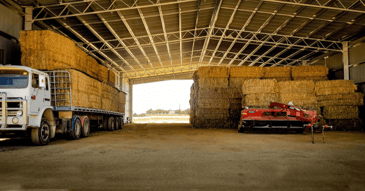
Getting a fodder storage or hay shed constructed on your farm is a smart move that will reduce ...
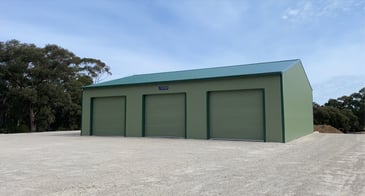
COVID-19 threw many challenges at businesses across Australia and the equestrian industry was no ...
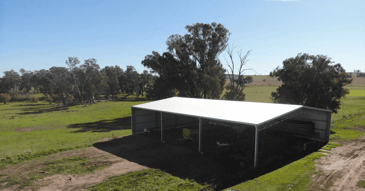
When designing a shed an important consideration that shouldn’t be overlooked is the roof. The type ...
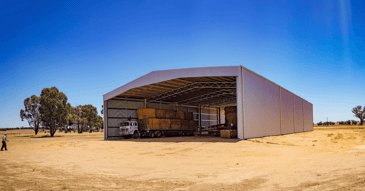
While you may have an idea of what your future farm shed or industrial building will look like, ...
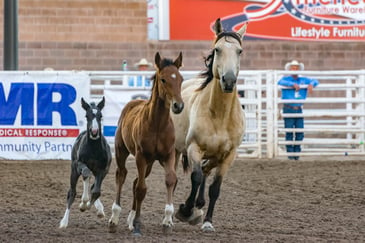
Whether you’re a seasoned rodeo attendee, or perhaps you’re looking to set up your own rodeo event ...
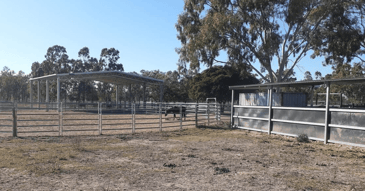
From hay sheds and dressage arenas to aircraft hangars and industrial sheds, our customers often ...
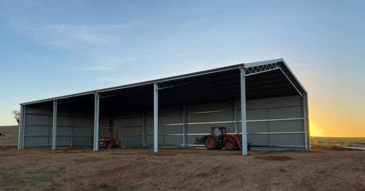
Are you considering a new steel shed for your farm or business? With a wide range of options ...
.png?width=365&name=abc_sheds_blog_feature_own_or_lease_aircraft_hangar%20(1).png)
The often varied and hot weather that we experience across Australia means that it’s essential to ...
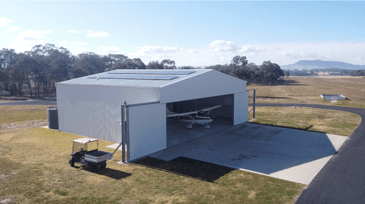
Aircraft hangars have been around for decades – in Australia it’s reported that the first ...
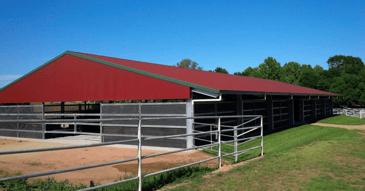
If you’re building an equestrian shed or horse stables for the first time, then you’ll have lots of ...
.png?width=365&name=abc_sheds_blog_feature_solar_energy%20(1).png)
More than 2.5 million Australian households now harness solar power across the country. As one of ...
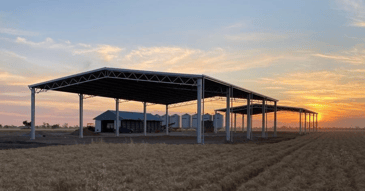
It’s that time again where we take a look back at the year that was and share a few of our ...
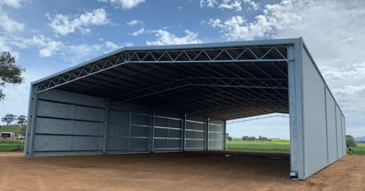
There’s a famous saying along the lines of “Rome wasn’t built in a day”. The Romans were right – ...
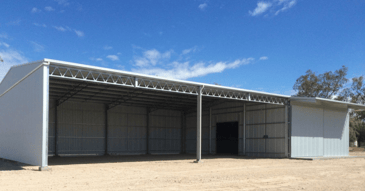
A quality farm shed is a valuable asset for any farmer or rural business owner. With the right ...
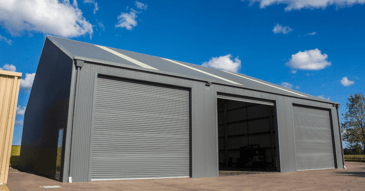
Any savvy farmer or business owner knows that they shouldn’t appoint just any shed manufacturer or ...
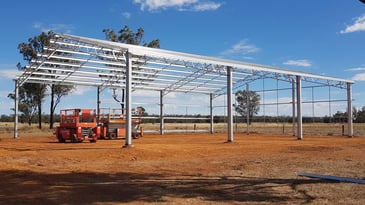
While assembling a new farm shed or horse arena is no small feat, many people are unaware that most ...
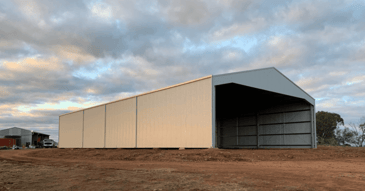
Whether you’re looking to cut down costs or stay within an existing budget, finding the money for ...
%20(1).webp?width=365&name=abc_sheds_blogs_building_a_hay_shed%20(1)%20(1).webp)
If you’re looking to create more hay or harvest storage for your property, then you may be ...
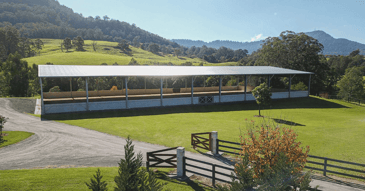
If you’ve decided to invest in a new dressage arena or perhaps you're giving your existing arena a ...
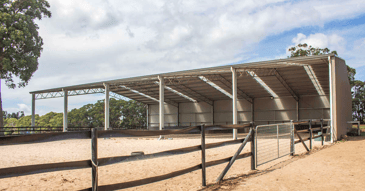
Whether you’re looking for a dressage arena for riding or perhaps something a bit smaller for the ...
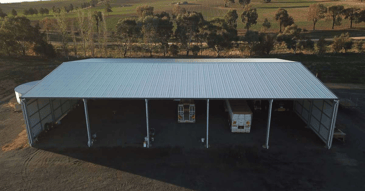
If you operate a farm there’s no doubt that you will have farm machinery and equipment on-site that ...

Years of drought and hardly any rain have had a significant impact on Australian farmers. This ...
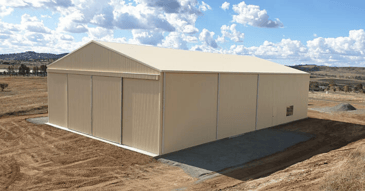
For many farmers, farm security and the risk of theft are unwanted problems that are all too ...
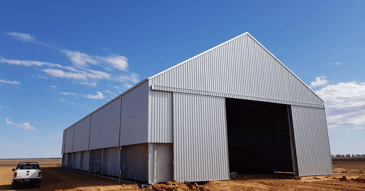
There are now various options available to keep grain secure – from bags and silos to grain sheds. ...
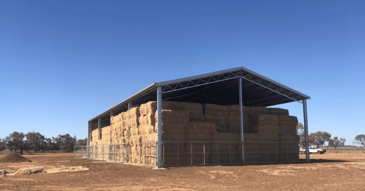
Hay bales are a common sight on many farms across Australia and can be a good source of food for ...
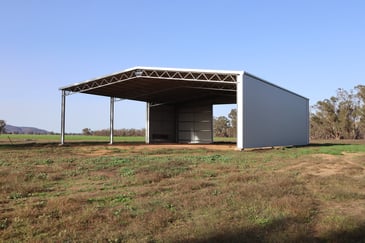
For any new building project, there can be a lot that needs to be considered before you get ...
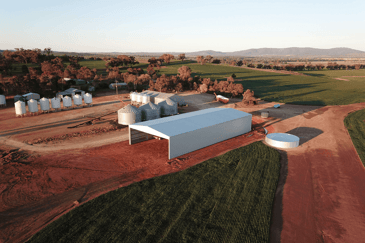
2020 has been a tough year so far for many farmers across Australia. Bushfires ravaged many parts ...
.jpg?width=365&name=abc_sheds_horses_in_paddock_with_shed%20(1).jpg)
A loafing shed can be a valuable asset for any horse trainer, especially those that may train their ...
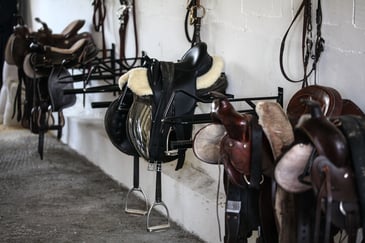
Many people think that a horse stable is simply a horse stable – a covered structure that can house ...

For anyone that owns or operates a farm, farm assets like buildings, equipment and machinery are ...
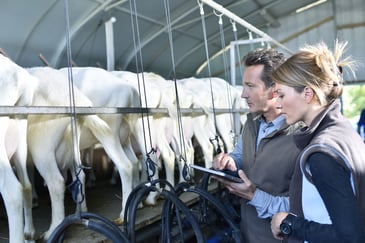
On the 12th of March the government announced a stimulus package for Australian businesses to keep ...
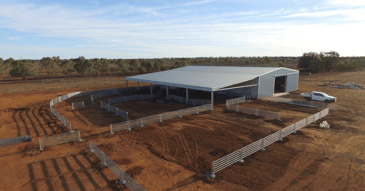
Just like any new shed or piece of infrastructure, the cost to build a farm shed can be a big ...

Providing your horses with a comfortable stable leads to happier, healthier horses. Whether you are ...
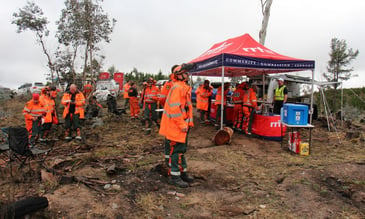
Image Source. Just like you, we were devastated to see the toll the recent Australian bushfires ...

So you’ve decided to build an aircraft hangar – great stuff! If you’re choosing to build an ...
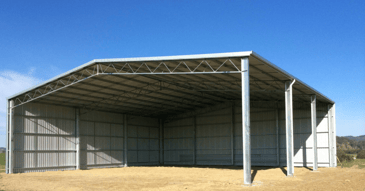
Any farmer with livestock knows the effort and cost involved in continuing to buy feed for their ...
.webp?width=365&name=Don%20Mac%20Warehouse%20(1).webp)
If you’re planning on constructing a new commercial shed or building then you’ll want to make sure ...
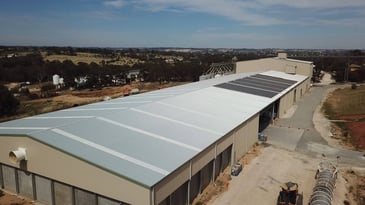
Over the past year we’ve had the pleasure of working on some amazing shed projects across Australia ...

With the end of the year fast approaching (hasn’t this year gone quickly!) we thought we’d look ...
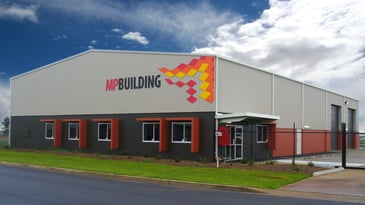
If you’re looking to construct a commercial or industrial building, there are important things to ...
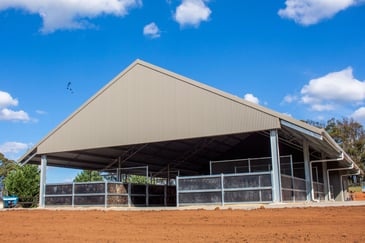
So you’ve decided to invest in a horse stable – good choice! Horse stables or sheds are a great way ...

Whether for dressage, eventing, jumping, cutting, campdraft or simply recreation, your horse arena ...
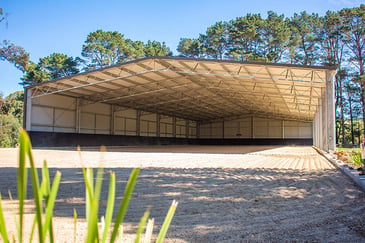
Being based in New South Wales, Australia we’re no strangers to the heat and understand that ...
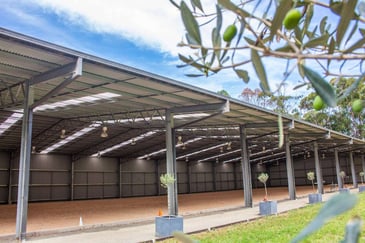
Filling the dreams of many avid riders is the ownership, one day, of an arena. And whereas the ...
Helpful Links
Contact Info
Request a Call-back
© 2026 | Privacy Policy | Health & Safety Policy